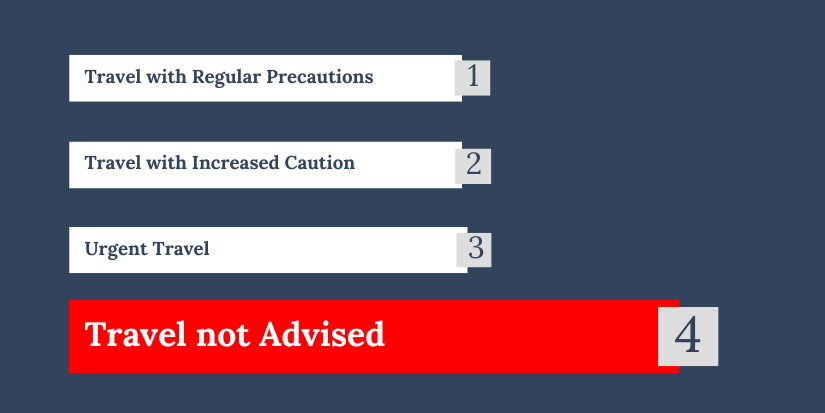
VISA REGIME
For holders of national passports and other travel documents: Visa required
For holders of diplomatic and official passports: Visa required
Note: Visa is required for the holder of an emergency travel document in transit
ENTERING AND LEAVING THE COUNTRY
Visas for various purposes, listed in the executive regulations of the law of Libya No. 6 of 1987, are issued by the Libyan Directorate for Passports, Citizenship and Foreign Affairs.
The issuance of entry visas for residence and work will be based on a permit for the admission of foreign workers issued by the Ministry of Labour, in accordance with established procedures.
In Libya, the types of visas are defined as follows:
A – Entry visa for one trip.
B – Entry visa for multiple trips.
C – Group visa to entry the country.
D – Transit visa.
E – Exit and return visa for one trip.
F – Exit and return visa for multiple trips.
G – Residence visa.
Entry visas are approved for the following purposes:
-
Business,
-
Tourism,
-
Visit,
-
Official mission,
-
Joining and emigrant.
The visa is valid for forty-five days from the date of issue, and gives its holder the right to stay in Libya for a period of ninety days from the day of entry into the country.
The period of stay granted by entry visas may be extended for a period not exceeding one month, provided that there are no obstacles to this.
The one-month exit visa is granted to foreigners who have a residence visa and wish to leave Libya permanently, and the following is required for its issuance:
-
Application for an exit visa on the prescribed form.
-
Employer's approval for issuing of the required visa.
-
Evidence of paid financial obligations to the competent authorities.
Exit and return visas are issued for one trip for a period of three months, from the date they were issued.
Exit and return visas are granted for several trips for a maximum of six months for holders of residential visas, with some conditions (nature of work requires it, approval of the manager of a foreign company, recommendation of a public body, etc.) and the decision to grant this visa is made by the Director General of the Directorate for Passports and Citizenship.
Group entry visa – may be granted to a certain number of persons listed in the group travel document, such as sports, scientific and tourist teams, whose number should not exceed fifty.
Residence visa – issued for residential work and residence without a job and with a specific purpose.
This visa can be issued for work and without work for a period of five years, without exceeding the validity of the travel document and can be extended for certain categories.
Every foreigner who stays in Libya for a longer period of time must submit a passport to the nearest authority for registration and determination of the place of residence, according to the form prepared for that, within seven days from the day of entering the country.
Fees for issuing visas are clearly determined.
The categories that are exempt from paying visa fees are: children under the age of sixteen; guests of the country who have been invited to attend meetings, seminars, conferences or have come on an official visit; and visas issued under international agreements.
In all these cases, the principle of reciprocity is respected.
Note:
Entry visas to Libya are not issued to foreigners in the following categories:
-
Persons who violated the laws of Libya and who were deported from the country.
-
Persons connected with international terrorism, crime and smuggling or connected with organisations or bodies against the freedom of the people.
-
Persons who have travel documents issued by the State of Israel, entry visas for this country or confirmed entry into it (stamp in the travel document).
SOCIAL SECURITY AGREEMENT
No social security agreement has been concluded.
USEFUL INFORMATION
HEALTH SITUATION – The health situation in Libya is stable. There are no specific infectious diseases that pose a threat to the population's health. No prior vaccination is required for visitors, but it is necessary for foreign nationals residing in Libya and working there. Although a large number of residents use tap water for drinking, it is recommended to use bottled water, which is available in all grocery stores.
SECURITY SITUATION – We remind you of the 2014 Government Regulation which advises against travel to this country due to security reasons. Any trip to Libya, unless organized by official state institutions of the Republic of Serbia, remains entirely at personal risk, given the security situation in the country, although it has improved significantly. If Serbian citizens decide to travel to Libya, they do so at their own risk, keeping the security situation in mind, and in such cases, individuals are advised to contact the inviter, usually the company they are visiting for business purposes, to ensure their safety during their stay in Libya.
OTHER INFORMATION – The national currency of Libya is the Libyan dinar, which, apart from the official state exchange rate, appears at a much lower value on the black market. It is advised to avoid exchanging money with street vendors.
Contact information
During your stay in Libya, for consular assistance and protection, you can contact the Embassy of the Republic of Serbia in Tripoli (Address: Abdalla Ben Salam, Ben Ashour Area, P.B. 1087, Tripoli, Libya). The phone numbers are +21821 / 362-32-05 and +21821 / 362-32-06, and the email addresses are: srb.emb.libya@mfa.rs, serbianembassyinlibia@gmail.com. In case of emergencies, citizens can also reach the mobile phone +218 91 661 7575.
